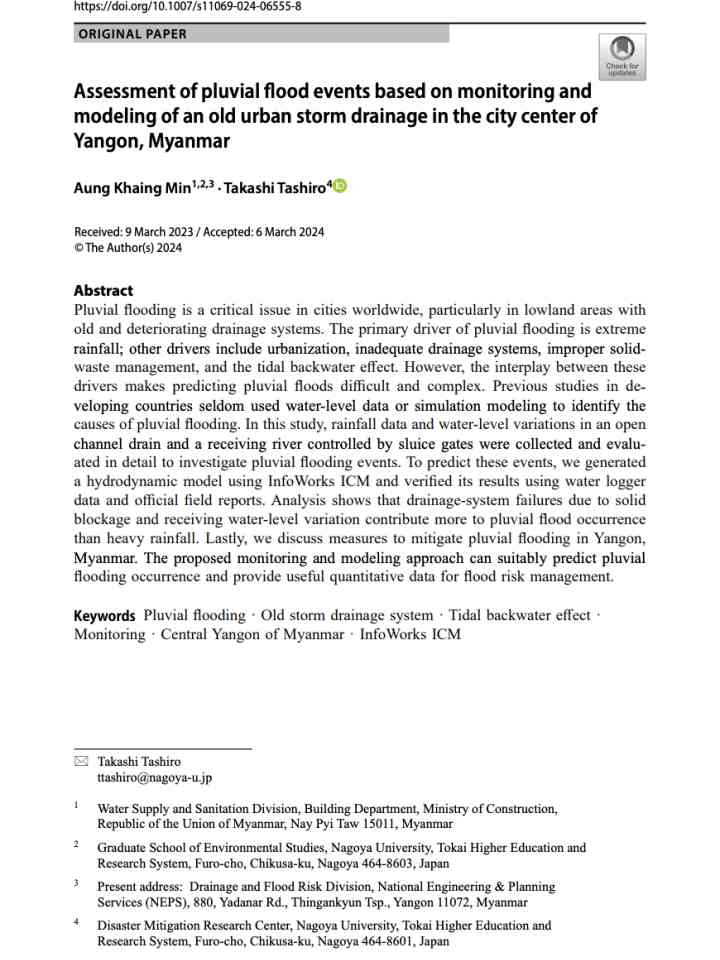Assessment of pluvial flood events based on monitoring and modeling of an old urban storm drainage in the city center of Yangon, Myanmar
In this study, rainfall data and water-level variations in an open channel drain and a receiving river controlled by sluice gates were collected and evaluated in detail to investigate pluvial flooding events. To predict these events, researchers generated a hydrodynamic model using InfoWorks ICM and verified its results using water logger data and official field reports. Analysis shows that drainage-system failures due to solid blockage and receiving water-level variation contribute more to pluvial flood occurrence than heavy rainfall.
This publication finds the following:
- Based on an understanding of the effect of sediment blockage in storm water drainage systems on pluvial flooding, the municipal authorities should clearly explain the consequences of illegal waste disposal on the increase in risk and severity of flooding;
- In addition to introducing good waste management practices in schools, universities, and other establishments in the public and private sectors, it is essential to ensure that they are implemented well and that sediment dredging and ad hoc cleaning of drainage systems are scheduled regularly;
- Installing sediment traps, covering open channels, and adding bar screens at curb inlets can reduce the severity of floods in the city, while creating flood water detention ponds can reduce water levels in the receiving water bodies during heavy rainfall.
Explore further
